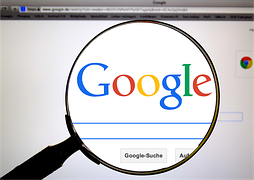Google’s AdWords vs. Bing AdWords, Who is better?
Search engine marketing has become an integral part of a business’s online strategy, and paid search is one of the top sources for driving traffic to a company’s website. In fact, PPC (pay-per-click) advertising provides the highest ROI (return on investment) of any type of online marketing scheme.
The two main search engine platforms for PPC campaigns are Google AdWords and the Yahoo! Bing Network. Each one has its pluses and minuses and depending on a business’s market, budget, competition, etc. one may be a more viable solution that the other.
Google AdWords is the leading search engine with 67 percent of the market share. It consists of two networks: Google Search Network and Google Search Partners. Google AdWords is generally considered an easier platform to manage; it’s user-friendly, has a high search volume, and more advertising extensions than Bing. It’s better for medium or low competition markets with a clear advertising strategy and flexible budget.
Like Google, Bing also allows businesses to advertise through two different networks: Bing Search Network and Bing Content Network. Bing Ads has less competition than Google and its CPC (cost-per-click) are 50-70 percent cheaper; its impressions are 90 percent cheaper, as well. With Bing Ads, small businesses can easily rank higher while getting increased ad exposure, despite relatively small marketing budgets. So if cost and high competition levels are major factors in a company’s advertising budget, then Bing could be a better choice, resulting in low cost-per-acquisitions.
In addition, Bing allows a business to assign different campaigns, different time zones – Google does not. Bing also has a very helpful customer service department willing to help small companies that spend at least $500 per month, whereas Google’s ante for good customer service is $500,000 per year.
So, for a more user-friendly platform with high search volume, Google AdWords is often a better choice. Bing prevails for high competition, low-budget startups. For businesses that have the budget and ability, working with both platforms gives them the best of both worlds.
 1-844-47-Click (1-844-472-5425)
1-844-47-Click (1-844-472-5425)


